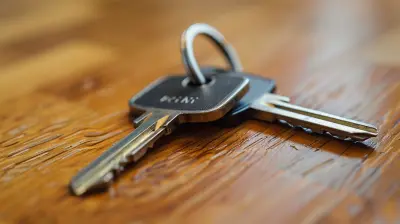1 December 2024
House flipping is like the wild west of real estate—it’s fast-paced, lucrative, and thrilling! But don’t be fooled by the glamour depicted on your favorite HGTV shows. While turning a run-down property into a dream home sounds pretty straightforward, it’s not all swinging hammers and staging furniture. One of the most overlooked hurdles in house flipping? Permits, codes, and legal challenges.
If you’re not careful, these legal landmines can derail your project faster than a sledgehammer tearing through drywall. Fear not, budding house flipper—this guide will give you a clear understanding of what to expect, how to navigate the maze of permits and codes, and avoid costly mistakes.
Let’s dive into the nitty-gritty of permits, codes, and the legal side of house flipping. Shall we? 
The Importance of Permits in House Flipping
Before you grab that crowbar and start tearing down walls, let’s talk about permits. What exactly are they? Essentially, permits are legal approvals from your local government that allow you to make specific changes or improvements to a property.Skipping permits might seem tempting to save time and money, but trust me—it’s a terrible idea. Why? Let’s break it down:
1. Legal Trouble: Remodeling without proper permits is like driving without a license. If local authorities find out, you could face hefty fines or even be forced to undo your work. Ouch!
2. Resale Nightmares: When it’s time to sell your flipped house, buyers and inspectors will dig through your paperwork. Missing permits can raise red flags and tank your deal.
3. Safety Concerns: Permits ensure that the renovation meets local building codes, which are in place to protect future occupants. Think about it—would you want to live in a house with shaky electrical work or weak structural beams? Didn’t think so.
The bottom line: don’t cut corners. Permits are your safety net for both legal and practical reasons. 
Types of Permits You’re Likely to Need
Not all renovations require permits, but many do—especially the heavy-duty stuff. Here’s a list of the most common permits house flippers encounter:1. Building Permit
This is the big one. A building permit covers structural changes, additions, or major alterations. For example, if you’re adding a new room, tearing down load-bearing walls, or expanding the property’s square footage, you’ll need this.2. Electrical Permit
Planning to rewire the house or install new electrical systems? An electrical permit ensures your work aligns with safety codes and won’t spark any (literal) fires down the line.3. Plumbing Permit
Upgrading bathrooms, adding new water lines, or relocating fixtures? You’ll need a plumbing permit. This ensures the work won’t lead to leaks or water damage.4. HVAC Permit
If you’re installing or replacing heating, ventilation, and air conditioning systems, you’ll likely need an HVAC permit. These systems are vital for a home’s comfort and efficiency.5. Demolition Permit
Planning to knock down walls or gut the property? A demolition permit is required to ensure the project is safe and doesn’t harm neighbors or the surrounding environment.
The Role of Building Codes in Your Flip
Permits are only half the battle. Once you have the green light to start your project, you’ll need to ensure your work complies with local building codes.Think of building codes as a giant rulebook for construction. They dictate everything from ceiling height to stairway width and even the type of foundation you can use. These rules are there for a reason—to ensure homes are safe, energy-efficient, and environmentally friendly.
Failing to meet building codes can result in failed inspections, project delays, and, worst-case scenario, having to redo parts of your renovation. Yikes! 
Common Code Violations in House Flipping
Even seasoned house flippers can trip over building codes, so it’s important to know what to watch out for. Here are some common violations:1. Improper Electrical Work: DIY electrical projects might save money, but they often don’t meet code requirements. And honestly, do you really want to mess with live wires?
2. Lack of Egress Windows: Bedrooms need windows large enough for occupants to escape in case of fire. Skipping this can land you in hot water.
3. Staircase Issues: From wrong tread heights to missing handrails, stairs are a common source of violations.
4. Improper Ventilation: Bathrooms, kitchens, and laundry rooms require proper ventilation to avoid mold and mildew. Don’t skimp here!
5. Unpermitted Additions: Adding a deck or room without a permit? It’s a no-go.
Legal Challenges: What to Watch Out For
Permits and codes aren’t your only hurdles. House flipping comes with its fair share of legal challenges. Here are some to keep on your radar:1. Zoning Laws
Zoning laws dictate how a property can be used. For example, a single-family home can’t be converted into a multi-unit building if it’s zoned for single-family use. Always check zoning restrictions before purchasing a property.2. Liens on the Property
A lien is a legal claim against a property due to unpaid debts (like taxes or contractor fees). If you buy a house with a lien, you could inherit the financial mess. Always run a title search before purchasing.3. Contractor Disputes
Working with contractors can feel like navigating a minefield. Make sure to have clear, written contracts to avoid disputes over costs, timelines, and quality of work.4. Environmental Hazards
Older homes can have hidden dangers like asbestos, lead paint, or contaminated soil. Ignoring these hazards isn’t just illegal—it’s dangerous. Be proactive and get your property tested.5. Disclosure Laws
When it’s time to sell, you’re obligated to disclose any known defects or issues with the property. Being upfront protects you from legal trouble down the line.How to Navigate These Challenges Like a Pro
Alright, we’ve covered a lot of potential pitfalls, but don’t let them scare you off. With the right preparation and mindset, you can tackle permits, codes, and legal challenges like a pro. Here’s how:1. Do Your Homework
Knowledge is power in house flipping. Before you even make an offer on a property, research local permit requirements, building codes, and zoning laws.2. Hire Professionals
Don’t be a DIY hero when it comes to legalities. Hire a real estate attorney, work with licensed contractors, and consult with architects or engineers when needed. They’ll keep your project on the right track.3. Budget for Permits and Inspections
Permits and inspections come with fees, so make sure to factor these into your budget. It’s better to overestimate than to scramble for cash later.4. Document Everything
Keep meticulous records of permits, approvals, and inspections. If any disputes arise, having a paper trail is your best defense.Wrapping It All Up
House flipping is an exciting venture, but it’s not without its challenges. Permits, building codes, and legal hurdles can feel like roadblocks, but they’re there to ensure your success in the long run. Taking shortcuts might seem tempting, but they can jeopardize your flip—and your peace of mind.By doing your research, working with professionals, and staying on top of the rules, you can navigate these obstacles and turn your fixer-upper into a profitable masterpiece. Now go on—conquer that flip like the pro you’re destined to be!











Courtney McLaughlin
Embrace challenges as opportunities—every obstacle in house flipping leads to greater success!
March 21, 2025 at 9:36 PM